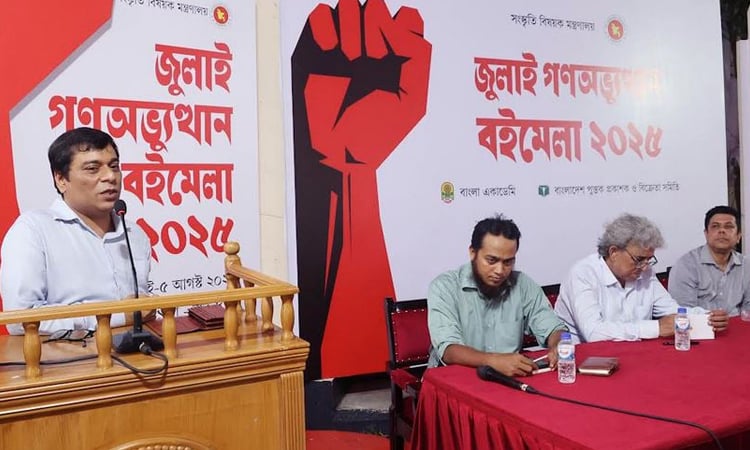News Flash
News Flash

DHAKA, Aug 2, 2025 (BSS) - Bangladesh Sangbad Sangstha (BSS) Managing Director and Chief Editor Mahbub Morshed today said censorship in the country took a more discreet or 'smart' form during the fallen fascist Awami League's tenure, often targeting writers and publishers without formal bans.
Speaking at a discussion titled "Censorship and Thinking Arena of Bangladesh", held at the Bangla Academy on the second day of the "Bloodstained July: In Our Memory and Courage" book fair, Mahbub Morshed said while no official bans were placed on specific books, various indirect methods were used to curb their circulation and public visibility.
"During that time, certain books were not promoted or published, though no formal bans were declared. In many cases, publishers were denied stall allocations at book fairs without any stated reason -- effectively blocking access to readers," he said.
Morshed, also a writer, emphasized that such practices created a restrictive environment for intellectual freedom.
"We witnessed various forms of censorship -- publishers and writers were harassed, some faced severe business losses. Writers like Faham Abdus Salam and Zia Hasan had their books blocked from distribution, yet were never officially informed of any restrictions," he added.
He noted that criticism of key political figures including the Sheikh family was met with swift retaliation.
"Writers who voiced dissent against Sheikh Hasina or Sheikh Mujib often faced legal cases, arrests, or social media restrictions. Numerous journalists and teachers across the country have experienced imprisonment simply for expressing their opinions online," Morshed said.
He further added that the censorship extended beyond the publishing industry.
"We observed limitations on Facebook activity -- profiles being restricted or monitored due to critical posts," he said.
Morshed stressed the need for freedom of expression, stating, "Censorship will diminish only when all writers are given equal freedom to write without fear or restriction."
Writer Imrul Hasan said censorship today often comes in more subtle forms.
He said censorship is imposed through a kind of noise -- where important voices are drowned out by irrelevant distractions. For example, when a critical drama is produced, media attention is diverted by flooding the space with trivial news, effectively muting serious discourse.
Director of Pustok Prokashon Abul Bashar Firoz and publisher Abu Bakar Siddiq Raju, among others, attended the discussion.
The book fair commemorates the 2024 July Uprising and aims to uphold the memory of those who resisted repression with courage and intellect.